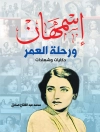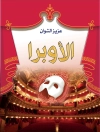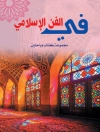This collection explores the dynamic place of Muslim visual and expressive culture in processes of decolonization across the African continent. Presenting new methodologies for accentuating African agency and expression in the stories we tell about Islamic art, it likewise contributes to recent widespread efforts to “decolonize” the art historical canon.
The contributors to this volume explore the dynamic place of Islamic art, architecture, and creative expression in processes of decolonization across the African continent in the twentieth and twenty-first centuries. Bringing together new work by leading specialists in the fields of African, Islamic, and modern arts and visual cultures, the book directs unprecedented attention to the agency and contributions of African and Muslim artists in articulating modernities in local and international arenas. Interdisciplinary and transregional in scope, it enriches the under-told story of Muslim experiences and expression on the African continent, home to nearly half a million Muslims, or a third of the global Muslim population.
Furthermore, it elucidates the role of Islam and its expressive cultures in post-colonial articulations of modern identities and heritage, as expressed by a diverse range of actors and communities based in Africa and its diaspora; as such, the book counters notions of Islam as a retrograde or static societal phenomenon in Africa or elsewhere. Contributors propose new methodologies for accentuating human agency and experience over superficial disciplinary boundaries in the stories we tell about art-making and visual expression, thus contributing to widespread efforts to decolonize scholarship on histories of modern expression.
Jadual kandungan
List of Figures
Acknowledgements
Introduction: Un-Disciplining African Muslim Expressive Cultures
Ashley Miller
Part 1 – Beyond Borders: African (and) Muslim Objects as ‘Relational Loci’
1. Dispersal, Decolonization, and Dominance: African Muslim Objects from the Swahili Sultanate of Witu (1858–1923)
Zulfikar Hirji
2. ‘A Land that Fulfils Dreams’: Rethinking Zanzibar’s Stone Town Beyond a Colonial Imaginary
Michelle Apotsos
Part 2 – Disobedient Media: Reclaiming African Muslim Expressive Cultures
3. ‘Disobedient’ Perspectives on African Muslim Arts
Allen F. Roberts and Mary Nooter Roberts
4. Entanglements of Belonging: Regional and Global Bonds in an Urban Muslim Masquerade
Lisa Homann
5. Tattooing as Subversive Archive: Safaa Mazirh’s Reclamation of Tattoos in Postcolonial Morocco
Cynthia Becker
Part 3 – Mobilizing Heritage: Painting Postcolonial Identities
6. Calligraphy in Mauritania: Creating a Lost Identity
Mark Dike De Lancey
7. Possessed: The Mystical Post-Surrealism of Wifredo Lam, Abdel Hadi
Alex Dika Seggerman
8. Cybernetics and Postcolonial Utopias
Holiday Powers
Part 4 – Undisciplined Constructions: Relocating ‘Islamic’ Architecture in Africa
9. Between Art and Architecture, Modernism and Makhzen
Emma Chubb
10. Kader Attia’s Alternative History of the Grands Ensembles, from France to Algeria and Back
Jacobé Huet
Contributor Biographies
Index
Mengenai Pengarang
Ashley Miller is Assistant Curator of African Art at the University of Michigan Museum of Art, USA. She specializes in the visual and material cultures of twentieth-century Morocco, with a broader expertise in issues of heritage and collective memory, the history of museums in Africa, and the entanglement of modern art production with problems of identity and representation in colonial and postcolonial Africa.





